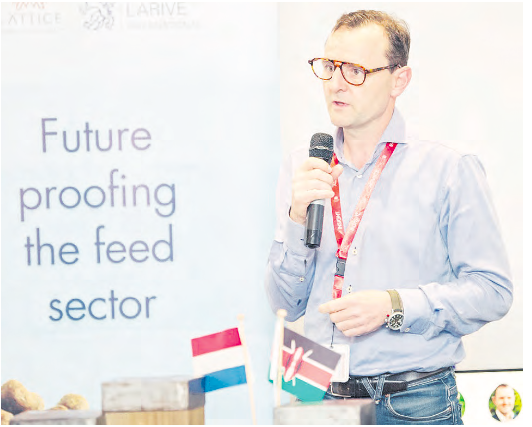

Stakeholders in the agriculture sector have called for deliberate efforts to commercialise research findings to ensure a sustainable animal feed sector.
The sector has faced challenges, including fluctuating feed prices, poor quality standards, and a lack of access to affordable, high-quality feed for smallholder farmers.
These issues, they said, have hampered the productivity of livestock farming, a sector that supports millions of Kenyans.
Extensive research has been conducted on animal feeds ranging from alternative feed sources to climate-smart innovations, but most of it remains in academic institutions and is yet to be commercialised.
The stakeholders met during the country’s second Feed Sector Roundtable held in Nairobi.
The forum is supported by the Dutch Embassy in collaboration with key local and international partners including Lattice Africa, Larive International, and the Agriculture Sector Network.
Jorris van Bommel, Netherlands deputy ambassador to Kenya, underscored the need for a robust feed sector, without which the livestock industry cannot thrive.
“If you talk about the livestock sector, you need to talk about the feed sector. We need to improve how we develop the sector and what we can do with the different partners,” van Bommel said.
The forum emphasised the need for stronger collaborations between the Kenyan government, private sector players, and international partners as critical in transforming the feed sector and scaling up innovations, improving infrastructure, and streamlining regulatory frameworks.
The roundtable rallied for collaboration and innovation to transform the feed industry into a model of sustainability and efficiency.
Lilian Marenya, the head of programs at Lattice Africa, said players in the feeds industry need to have a multi-dimensional conversation.
“Partners have now moved from talking to taking action and are seek- ing to close the gap between research and the market,” she said.
Lattice Africa gives innovative advisory and aquaculture solutions on agribusiness, food security, and Micro, and Small and Medium Enterprises
Elizabeth Kiamba, the Netherlands’ Embassy advisor on agriculture, said an innovation mission on sustainable livestock was carried out earlier in the year in partnership with the Kenyan government and players in the sector.
The mission focused on leveraging Dutch expertise in sustainable agricultural practices to enhance Kenya’s livestock value chain.
It explored opportunities for knowledge exchange, investment, and technology transfer, laying the groundwork for tangible improvements in feed production and distribution.
The Netherlands, renowned for its efficiency in agriculture, continues to be a key partner for Kenya and Dutch organisations have expressed interest in investing in the country’s feed sector.
This, she said, will see Kenyans benefit from advanced technologies such as precision farming, feed-for-mulation software, and sustainable production methods.
The CEO of Larive International, Wouter van Vliet, pointed out that Kenya could transition from an importer of animal feeds to a net exporter of partnerships and technology that were well utilised.
This comes amid calls from farmers to have the industry streamlined. In Murang’a County, farmers decried the highly-priced, yet poor-quality feeds available in the market.


